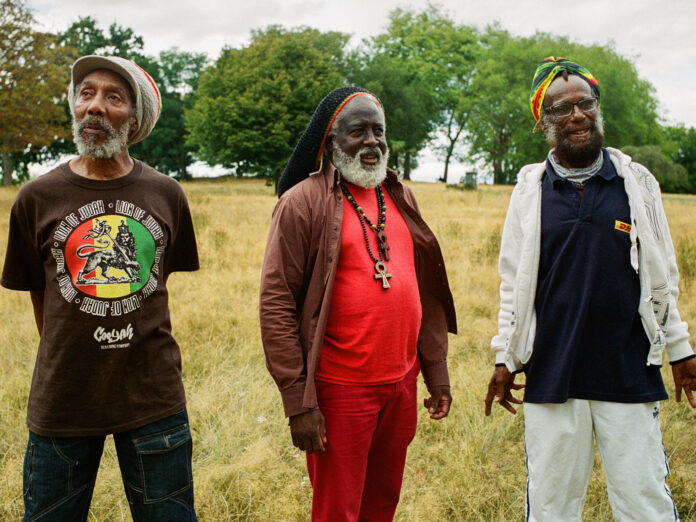“It was a complete accident,” says filmmaker Mark Warmington, explaining how he came across the remarkable story of the Cimarons, the UK’s first indigenous reggae band. He was living and working as a cameraman in Brent when someone at the council suggested he speak to Cimarons guitarist and co-founder guitarist Locksley Gichie. “When he told me about who they’d worked with and what they’d done, it was just incredible.”
“It was a complete accident,” says filmmaker Mark Warmington, explaining how he came across the remarkable story of the Cimarons, the UK’s first indigenous reggae band. He was living and working as a cameraman in Brent when someone at the council suggested he speak to Cimarons guitarist and co-founder guitarist Locksley Gichie. “When he told me about who they’d worked with and what they’d done, it was just incredible.”
BRUCE SPRINGSTEEN IS ON THE COVER OF THE NEW UNCUT – ORDER YOUR COPY HERE
The result is Warmington’s film Harder Than The Rock, which tells how the Cimarons formed in Harlesden, took reggae around the world, worked with everyone from Bob Marley to Paul McCartney, but ultimately disappeared under the radar – something that the documentary is seeking to put right. As Gichie says, “It will mean that all our blood, sweat and tears haven’t gone to waste.”
Jamaican-born teenagers Gichie and Franklyn Dunn (bass) met in a bus shelter in 1967, subsequently being joined in rehearsals by Carl Levy (keyboards), Maurice Ellis (drums) and Carl Lewis (vocals). After playing their first gig at Harlesden cricket club to an audience who Gichie remembers “going crazy” for their live versions of rocksteady imports, the Cimarons initially made their reputation as a backing band for visiting Jamaican stars such as Desmond Dekker and Jimmy Cliff.
Uncovering photos and film from those days turned Warmington into “a detective”. Sadly, no footage survives of the Cimarons backing Bob Marley, but Gichie tells how, in 1972, the Jamaican legend-in-the-making came to London without the Wailers and was stunned to realise the Harlesden band not only knew but could play his songs. “Bob said ‘Man, I can’t believe this,’” smiles the guitarist. “‘You guys sound like The Beatles, in Jamaica.’” The Cimarons did three shows billed as the Wailers. Other achievements include becoming the first reggae band to play in places such as Africa, Spain, Japan and Ireland, appearing on the Old Grey Whistle Test and even scoring a Jamaican No. 1 – still the only British reggae band to do so – with Marley’s “Talkin’ Blues”.
As Hot Rod All Stars, they were the unseen studio band on countless hits by “Dennis Brown, Errol Dunkley, Sheila Hylton, you name it…” They appeared on Top Of The Pops several times with “Everything I Own” chart-topper Ken Boothe, but despite playing on The Hotshots’ 1973 reggae hit “Snoopy Vs The Red Baron” were replaced on the show by a white band. Such frustrations meant that after new vocalist Winston Reid joined in 1973 they made seven albums of their own, including On The Rock (1976), produced in Black Ark Studios, Kingston by Lee “Scratch” Perry. “An inspiration,” says Gichie. “He’d make you laugh, so you’d want to play.”
As punk and reggae collided, they played with The Clash, The Jam and Generation X. “The mind-blowing one was a national tour with Sham 69,” grins Gichie. “We eventually had to set up our equipment at the back of the stage because all the crazy punks were spitting.” Another fan was Linda McCartney, who encouraged them to cover her husband’s material. “Paul brought his entire catalogue of songs. He just said, ‘Do whichever you want to.’” Sadly, 1981’s resulting Reggaebility flopped, but despite line-up changes the Cimarons journey hasn’t stopped. Warmington’s film poignantly captures drummer Ellis’s last studio performance in 2021, after which he was diagnosed with terminal cancer and “gone within six weeks”. Gichie and Dunn are now the only originals in the current line-up, but recognition is long overdue. As ragga MC General Levy – who grew up in Harlesden – explains in the film, “They were the spark that started a big flame.”
See harderthantherock.com for more info



